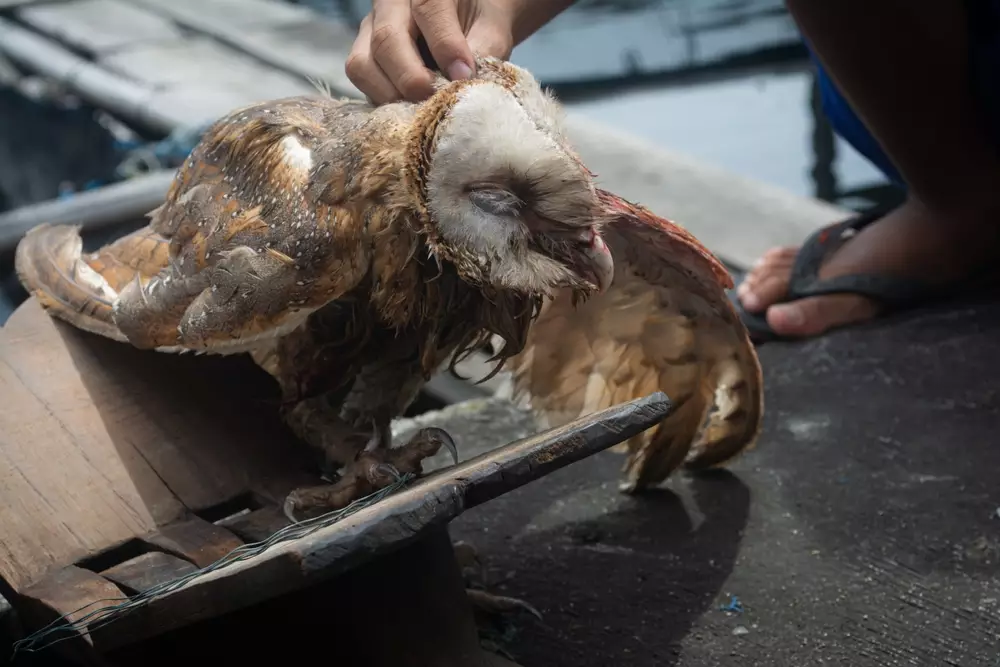Owls are carnivorous birds of prey and require a diet of live food. If you find an injured owl, you will need to provide it with a suitable diet until it can be released back into the wild or transferred to a rehabilitation facility.
The best way to ensure that an injured owl receives the proper nutrition is to contact a licensed wildlife rehabilitator. In the meantime, there are some things that you can do to provide the owl with food.
As a rule of thumb, it is always best to take injured animals to a licensed rehabilitation facility. However, there are times when this is not possible.
If you find an injured owl and are unable to get it to a rehabber, here are some tips on how to feed it.
Owls are carnivorous birds and prefer live prey. If you have access to live mice or other small rodents, these make the perfect food for an injured owl.
You can also offer meat from cooked chicken or beef, as well as small pieces of fish. It is important that the food you offer is chopped into small pieces so that the owl does not choke on it.
Feeding an injured owl too much food at once can also be dangerous, so offer smaller meals more often throughout the day. If you cannot get hold of any live prey or meat, you can try offering canned cat food or dog kibble soaked in water until soft.
These should only be offered as a last resort, though, as they do not provide all the nutrients that an owl needs to recover from its injury.

How Can I Help an Injured Owl?
If you find an injured owl, the best thing to do is to contact a licensed wildlife rehabilitator. If you are unable to transport the owl yourself, call your local game warden or animal control officer for assistance.
Do not attempt to care for the owl yourself unless you are a licensed wildlife rehabilitator.
Owls are wild animals and should be handled with caution and care. It is also important to never feed an owl without proper guidance, as this can cause further injury.
What Can I Feed a Wild Owl?
Owls are found in many habitats around the world, so there is no one-size-fits-all answer to this question.
In general, however, owls eat small mammals such as rodents, rabbits, and shrews. They will also take birds, reptiles, amphibians, and invertebrates such as insects.
If you find an injured or orphaned owl, it is best to contact a licensed wildlife rehabilitator who can provide the appropriate care.
If you must feed the owl yourself, offer it food that is similar to what it would eat in the wild. Raw meat (such as chicken or turkey), live prey (such as mice) or commercially available owl pellets are all good options.
Avoid giving the owl cow’s milk or other dairy products, as these can cause digestive problems.
What is the Best Food for Owls?
There is no definitive answer to this question, as different owls have different dietary needs and preferences.
However, some common foods that are often fed to owls include mice, rats, voles, rabbits, hares, birds, reptiles, and amphibians.
In captivity, many owls are also given a diet of specially-prepared owl pellets, which contain all the nutrients they need.
Can I Hand Feed an Owl?
It is possible to hand-feed an owl, but it is not recommended. Owls are wild animals and can be unpredictable, even if they have been raised in captivity.
If you do choose to hand-feed an owl, you should use caution and take care not to get bitten.
How to care for an injured Barn Owl?
What to Feed Owls in Captivity?
When it comes to feeding owls in captivity, there are a few things to keep in mind.
First, you will need to provide them with a diet that is rich in protein and fat. This can be accomplished by feeding them a variety of meats, such as chicken, turkey, quail, and mice.
You will also want to make sure that they have access to fresh water at all times. In addition to their regular diet, you will also want to offer owls in captivity some type of enrichment food.
This could include items such as live insects or small mammals. Enrichment foods help to keep owls mentally stimulated and can play an important role in their overall health.
If you are unsure of what type of food to feed your owl or how much to give them, it is always best to consult with a veterinarian or experienced bird keeper.
They can help you create a diet plan that is tailored specifically to your owl’s needs.
Conclusion
No one knows how many owls are injured each year, but it is safe to say that it happens more often than we would like.
If you find an owl that appears to be hurt, the best thing you can do is to take it to a licensed wildlife rehabilitation center as soon as possible. In the meantime, there are a few things you can do to help.
The most important thing is to make sure the owl has access to water. Owls need to drink regularly, even when they are not hunting, so a bowl of fresh water should be provided at all times.
You will also need to provide some food for the owl. Small mammals such as mice or shrews are ideal, but if you cannot find any, cooked chicken or hard-boiled eggs will suffice.
It is important that you do not handle the owl too much; even well-meaning attempts at caring for an injured owl can do more harm than good.
Let the professionals at the wildlife rehabilitation center take care of everything – they have the experience and knowledge necessary to ensure that your feathered friend makes a full recovery.